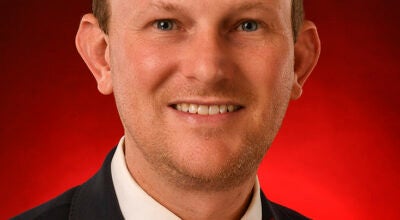Let Obama roll out Obamacare
Published 11:00 pm Friday, July 12, 2013
According to Winston Churchill, “A lie gets halfway around the world before the truth has a chance to get its pants on.” When it comes to Obamacare, the lies have circled the globe twice before the truth has gotten out of bed.
The Affordable Care Act, aka “Obamacare,” the most significant and wide-ranging legislation passed by Congress since the 1960s, is a response to a crisis decades in the making. Every President since Harry Truman (with the exception of Ronald Reagan) proposed a major health reform initiative. In his last State of the Union address, George H.W. Bush proposed a health insurance tax credit and guaranteeing all Americans access to basic health insurance. (Yes, it bears a resemblance to Obamacare.)
President Obama knew crafting legislation as important and far-reaching as the Affordable Care Act — a 21st-century Medicare, if you will — would be difficult, controversial and require a lot of compromise. He also stated that reforming health care would be a work-in-progress — a balancing act between the health of our citizens and containing costs.
Comprehensive health care legislation should be a given. After all, preventing illness and healing the sick is both divine and constitutional (i.e., providing for the general welfare).
Opponents have been worried about cost, choice and the rights of insurance companies. Some concerns are legitimate and were addressed in the legislation. Others will surely be incorporated in future modifications.
But the amount and extent of misinformation, fear-mongering and falsification requires some rhetorical aspirin.
Take, for example, the Republican response to the Obama administration’s recent announcement that it would delay implementation of the “employer mandate” until 2015.
Let’s cut through the hyperbole on the right, and understand the basics:
What is being delayed? Implementation of a tax penalty — it’s not a mandate — for employers that don’t provide coverage, as required by law.
Why is implementation of the tax penalty being delayed? The White House responded to petitions from large businesses for more time to implement the Act’s provisions. The administration is showing flexibility in granting the delay — the same flexibility it showed when it responded to requests by consumer advocacy groups and reduced the application for coverage from 21 pages to three.
Who is affected by the delay? Only employers with more than 50 employees. Significantly, more than 90 percent of such companies already provide coverage. And no one reasonably expects large companies that currently provide health insurance to stop offering it for one year.
An appropriate question, civilly asked and answered simply and directly.
I get why power-motivated politicians don’t have this kind of dialogue with their constituents. But why don’t the media do their job? They should be informing and educating the public.
Here’s a question that should be asked, more often and more insistently: Why are at least 13 states, including Florida, Texas and my home state of Louisiana, refusing to expand eligibility for Medicaid programs, when doing so would not only help hundreds of thousands of residents get needed health care (reason enough!) but would also help cure what ails the state budget. Perhaps when Bobby Jindal, Marco Rubio, Jeb Bush, Rick Perry and Ted Cruz make the rounds talking like presidential candidates, someone should ask them why they don’t want hardworking families to be able to afford regular checkups for their kids.
What about the “sticker shock,” the fact that this fall, when people shop for insurance coverage on the exchanges (the online marketplaces where people without employer insurance can buy insurance), some of them will see higher prices than before?
Yes, the price will go up — for some people. There are two reasons for this. First, health insurance will cover more conditions and treatments than the minimalist, often practically useless, coverage people with moderate incomes could previously afford — i.e., more bucks, but proportionately more bang for the buck.
Second, there will be an end to discrimination based on medical condition. So older and less-healthy people will have lower premiums. But the young and the healthy will have higher premiums.
Meanwhile, the doomsayers and “disinformants” ignore two of the most important points about Obamacare.
First, the exchanges will offer Americans a choice among plans that meet basic requirements. In other words, competition, which will bring prices down. And if an insurance plan costs too much, people won’t buy it.
Second, for people who earn less than four times the poverty line — $94,000 for a family of four — there will be tax credits to help pay for their insurance premiums.
A proper public information campaign would clear up much of the confusion and allay many of the misgivings about Obamacare. But, unsurprisingly, Republicans in Congress are preventing the people from getting the facts.
To paraphrase Churchill, rarely have so few done so much to confuse so many.
Donna Brazile is a senior Democratic strategist, a political commentator and contributor to CNN and ABC News, and a contributing columnist to Ms. Magazine and O, the Oprah Magazine.


